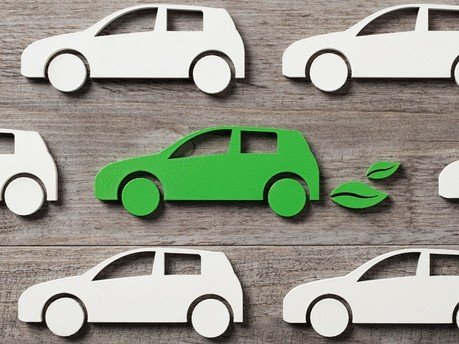How Green is Your Car?
Green NCAP introduces tougher tests for electric cars
In recent years, there’s been a real shift in the attitude of facing a future of electric-only cars on our roads. As we now know, by 2035, the sale of petrol and diesel cars will be banned in the UK, to make way for zero emissions vehicles.
Many motorists are already adapting to a life in the electric driving seat, with many more set to follow. Figures published on the website Zap Map, show that the number of electric cars registered in the UK have greatly increased in 2022. In 2021, more than 395,000 electric cars were present on the roads, this is compared to over 530,000 as of August 2022 - and counting.

As interest in electric cars from the public grows in popularity, so too does people’s understanding of what makes a car more eco-friendly, and how much of a positive impact zero emissions vehicles are having.
To help fuel this thirst for knowledge, here at Wilsons Epsom, we take a closer look at what makes a car ‘green’, and how the introduction of Green NCAP is shaping the way in which electric cars are tested. It seems the key to their success is ensuring that consumers fully understand the economical and environmental benefits. Read on to find out more…
What makes a vehicle ‘green’?
A question we find ourselves facing on a daily basis, this is an important question to address. The answer to this lies within its definition. To consider a vehicle as ‘green’, it needs to be both eco-friendly and perform using clean energy, while not having a harmful effect on the environment either. This three-fold approach is vital in classing a car as a ‘green’ vehicle.

To be truly ‘green’, a vehicle must have zero emissions and be powered by an alternative fuel - unlike the petrol and diesel cars currently dominating our roads. Emissions from conventionally-fuelled vehicle engines emit toxic gases, such as carbon dioxide, carbon monoxide, hydrocarbons, particulate matter, and nitrogen oxide, all of which have a very serious impact on the environment.
How harmful are cars to the environment?
The detrimental effect conventional vehicles have had on the environment are clear to see. To put it into perspective, car pollution can be attributed in three ways:
- The car manufacturer process contributes to 10%
- Driving a car (including refuelling and servicing) contributes to 85%
- The car disposal process contributes to 5%
From this it’s interesting to see how a car’s contribution to air pollution is broken down into these three sections and certainly makes you think. National charity Environmental Protection UK states on their website that road transport is one of the biggest sources of pollution in the UK - this is a worrying statistic indeed.
While many of us associate car travel with contributing to poor air quality due to the way they are fuelled, the harmful effects are so much more. As we know, poor air quality leads to climate change - the full effects we don’t yet fully understand.
How is Green NCAP helping?
Green NCAP is an initiative developed by the European New Car Assessment Programme - better known as Euro NCAP. Its purpose is to assess and test all new electric cars to ensure they are causing as little harm to the environment as possible.
In its efforts to be as accurate as possible, Green NCAPs testing process received an overhaul in 2022 and now follows an updated system. Within this process, every electric car tested is scored in three different categories:
- Clean Air Index
- Energy Efficiency Index
- Greenhouse Gases Index

A car can achieve up to 10 points in each of these categories - the higher the score, the better. A car which is awarded a maximum of 30 points from across the three categories, is considered the most clean, energy efficient and least harmful to the environment as possible. The accumulated points are then attributed to a five-star rating system, allowing consumers to access this vital information and final score.
How are Green NCAP cars road tested?
So that consumers can get a better understanding of how electric cars perform when used, Green NCAP has developed an on-road driving test. Using specially designed portable emissions measuring equipment, this part of the scoring process complements its initial laboratory tests. Both parts of the test measure what’s called ‘real-world’ emissions for a more accurate indication of the car’s effect on the environment.

Called the Real Driving Emissions (RDE) assessment, Green NCAP ensures an electric vehicle is tested under more realistic traffic situations than the manufacturer’s initial testing procedures would be performed.
How do I find out my car’s Green NCAP score?
Since 2020, Green NCAP has been releasing ratings of all electric cars tested under the European-approved system. Every car tested can be found in the Latest Ratings section of the website, where you can search by make and model.
However, it’s important to note that not every car is currently tested. The car’s chosen for testing by Green NCAP are selected because of their popularity, while also representing the most common engine types of electric cars. These are also compared against standard internal combustion engine cars too.
What is the greenest car available in 2022?
In August 2022, Green NCAP released its latest round of results. According to data compiled from its rigorous testing process, two cars out of the selection tested were awarded the top five-star score to consider it the greenest available. So without further ado, the top two Green NCAP cars in 2022 are…
- DACIA SPRING - 33 KW Electric FWD Automatic model. It scored five-stars based on the following results:
- Clean Air Index 10/10
- Energy Efficiency Index 9.8/10
- Greenhouse Gas Index 10/10
Yet to be released in the UK, the Spring is Dacia’s new electric model, designed as a compact SUV with mass appeal. It has modest battery power of 33 KW making which contributed to its near-perfect score across all three categories, resulting in a top five-star rating.

- AUDI Q4 e-TRON - Sportback 50 Quattro Electric AWD Automatic model. It also scored five-stars based on the following results:
- Clean Air Index 10/10
- Energy Efficiency Index 9.2/10
- Greenhouse Gas Index 9.5/10
The Audi Q4 e-Tron Sportback 50 Quattro is a fully electric car with a powerful 220 KW battery. Green NCAP tested the top-spec model to gain an overall five-star rating after an excellent performance across all three measured categories.
Go green at Wilsons Epsom
If you’re searching for an electric vehicle, then you’re in very capable hands here at Wilsons Epsom. As the largest family-run new and used car supermarket in the South of England, we proudly specialise in the sale of hybrid and electric vehicles.
As motorists accelerate towards a zero emissions future, we stock a wide range of the most popular fully electric and hybrid models on the market. We represent 11 new car brands, including - Abarth, Alfa Romeo, Fiat, Jeep, Hyundai, Nissan, Nismo, Peugeot, MG, Renault and Dacia, so can point you in the right direction when it comes to purchasing an EV.
All of our electric models are available to test drive at your convenience, so you can really get a feel for everything an electric car has to offer. Get started by taking a look at our electrifying models online.



